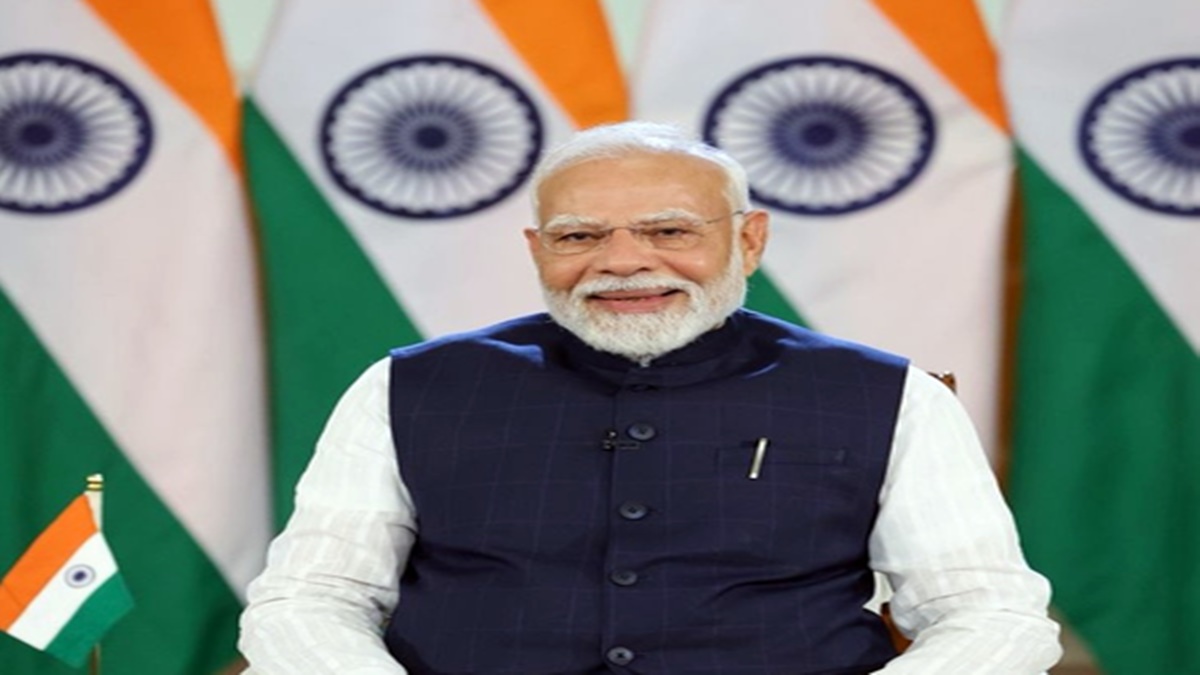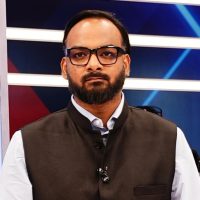Since the Second World War, almost eight decades ago, no leader had captivated the global imagination until the late 2010s.
The majority of the Cold War years were lost to the political turmoil that plagued the nations in the West. In the Soviet Union, the leaders were infamous for weakening the once grand empire. Even the American Presidents could not escape the curse of time, and eventually, the world entered the 20th century with crises that hinted at imminent conflicts.
Back home in India, the political leadership was largely contained within one party, and further, within one family.
Not choosing to align with a bloc, India went for the non-aligned movement, and in hindsight, we were everywhere, and yet, nowhere. When Chief Minister Narendra Modi was elevated to the higher office in Delhi in 2014, a nation of more than 120 Crore people was not only looking at a new leadership framework to guide the nation, but also a new perspective to take India’s message to the world.
In Narendra Modi, the country saw the resolve of a national leader and the vision of a global statesman.
The last eleven years have been of global turmoil. The 2010s witnessed the incapacity of several Western nations, including the United States of America, to shake off the economic horrors of the Great Recession of 2008.
Just when the nations were getting their economic trajectory back on track, the pandemic, the most gruesome in a century, hit the world in 2020. This was followed by the global supply chain crisis in 2020-21, the Russia-Ukraine War in 2022, and the Middle East tensions in 2023. In the decade PM Modi has governed India, the world has been in a constant state of chaos.
In this constant state of chaos, the political leadership across countries has been impacted as well. America saw the exit of a Democratic President in 2016, only to witness the return of another leader from the same party in 2020.
Across Europe, governments found their mandates dented post-pandemic, if not snatched altogether. Even China, which began the 2010s with geopolitical heft, was marred in its economic challenges by early 2020s, and while the leadership remains, resistance against the Communist Party is attaining a point of inevitability.
It is in this decade PM Modi cemented his position globally. While the combination of welfare programs, strong economic growth, prudent fiscal management, infrastructure push, and rapid digitalisation ushered the nation ahead under his leadership, the last decade was also of diplomacy with a difference.
India, under Prime Minister Narendra Modi, was no longer a mute spectator nor a submissive commentator. India’s assertion was visible in the early months of the Narendra Modi Government. Diplomacy had several facets, from rescue operations to humanitarian aids, from enhancing economic relations to collaborating on modern technologies.
In 2022, PM Modi’s stellar move to balance national economic interests with geopolitical intricacies resulted in India increasing its share of oil imports from Russia. Eventually, even the Europeans had to follow India’s cue. Post-2023 and the October attack on Israel, India’s global stance on the Middle East was consistent with the sensitivities of the region.
PM Modi’s diplomatic approach has been about prioritising the relationship before the returns, and that is what explains the constant push in African countries, and even some South American countries. Many countries that were earlier ignored under the previous governments are now active partners.
Interestingly, the Modi Doctrine has also been about evolving with time. Eleven years is a long time, and countries do diverge on several issues. Case in question is Turkey. While the nation responded to India’s humanitarian aid with drones to Pakistan, PM Modi was quick to send them a direct reminder during his visit to Cyprus.
Modi’s diplomacy has several shades, and several countries have embraced it as well, which explains the number of honours for the Prime Minister. Earlier today, PM Modi has been conferred with Ghana’s highest state honor, the Officer of the Order of the Star of Ghana, marking a significant milestone in his global recognition. This award is part of an impressive collection of 24 international honors celebrated by 140 crore Indians, symbolizing India’s relentless rise on the world stage.
The accolades span a wide range of nations, including Cyprus’s Grand Cross of the Order of Makarios III, Sri Lanka’s Mitra Vibhushana, Mauritius’ Grand Commander of the Order of the Star & Key of the Indian Ocean, Kuwait’s Order of Mubarak Al Kabeer, Guyana’s Order of Excellence, Barbados’ Order of Freedom, Nigeria’s Grand Commander of the Order, and Dominica’s Dominica Award of Honour.
Additional distinctions come from Russia’s Order of St. Andrew the Apostle, Greece’s Grand Cross of the Order of Honour, France’s Grand Cross of the Legion, Egypt’s Order of the Nile, Republic of Palau’s Ebakl Award, Papua New Guinea’s Order of Logohu, Fiji’s Companion of the Order of Fiji, and Bhutan’s Order of the Druk Gyalpo.
The list of honors continues with the US Government’s Legion of Merit, Bahrain’s King Hamad Order of the Renaissance, Maldives’ Order of the Distinguished Rule of Nishan Izzuddin, United Arab Emirates’ Order of Zayed Award, Palestine’s Grand Collar of the State of Palestine Award, Afghanistan’s State Order of Ghazi Amir Amanullah Khan, and Saudi Arabia’s Order of King Abdulaziz.
PM Narendra Modi will be conferred with Trinidad and Tobago’s highest civilian honour, The Order of the Republic of Trinidad and Tobago, his 25th sovereign honour.
PM Modi is a global statesman of our times. Since Franklin D. Roosevelt, no leader has been so instrumental to a world that is rapidly changing. Eleven years in office, and only half done in all probability, the Prime Minister has a lot to offer to the world in terms of global leadership. He’s India’s strongest voice, sincerest messenger, and the most stupendous testament to a nation that is rediscovering its civilizational place in the world.
(Tushar Gupta is a Delhi-based journalist and a political commentator)





















